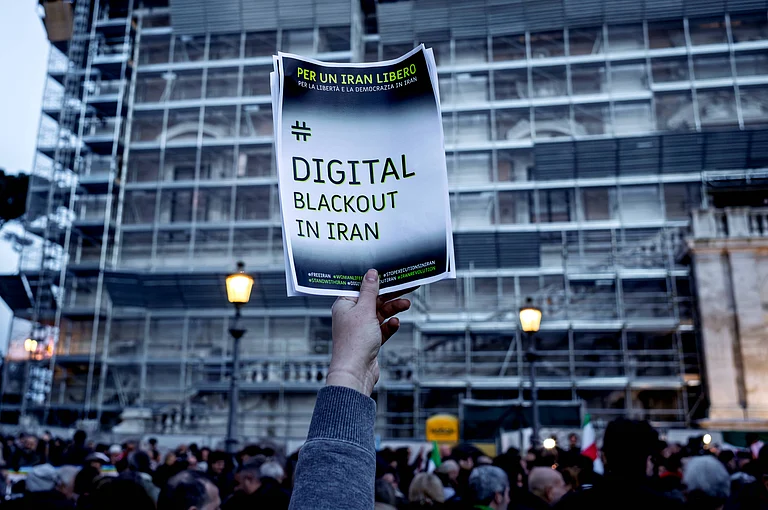Israel's government has approved a resolution to sever ties with the country's leading left-leaning newspaper, Haaretz, banning government-funded bodies from communicating with or advertising in the publication.
In a statement on Sunday, Shlomo Karhi's office, the communications minister, confirmed that his proposal against Haaretz had received unanimous approval from other ministers.
“We will not allow a reality in which the publisher of an official newspaper in the state of Israel will call for the imposition of sanctions against it, support the enemies of the state in the midst of a war, and be financed by it,” the statement read. “We advocate a free press and freedom of expression, but also the freedom of the government to decide not to fund incitement against the state of Israel.”
Haaretz, Israel's oldest daily, is internationally recognised for its reporting and analysis and has been a vocal critic of Prime Minister Benjamin Netanyahu and his right-wing coalition government. The newspaper has conducted investigations into misconduct by high-ranking officials and the armed services, making it a frequent target of the current administration. It has also strongly supported calls for a ceasefire to free hostages taken by Hamas in October last year.
Also Read | The Only Pressure That May Work On Netanyahu
In response to the resolution, Haaretz accused Netanyahu of attempting to “dismantle Israeli democracy” and described the boycott as “opportunist,” noting that it was passed without legal review.
“Like his friends Putin, Erdoğan, and Orbán, Netanyahu is trying to silence a critical, independent newspaper. Haaretzwill not balk or transform into a government pamphlet that publishes state-approved messages,” the statement declared.
According to the World Press Freedom Index 2024, Israel ranks 101st out of 180 countries. In comparison, India ranks 159th, while its neighbours Pakistan and Sri Lanka are ranked 152nd and 150th, respectively.
In West Asia, Lebanon and Israel are the only countries often cited for their press freedoms, where governments face regular media criticism. However, since October 7, press freedom in Israel has faced increasing restrictions, including banning articles, anti-press rhetoric from officials, alleged attempts to control news outlets, and attacks on reporters.
In April 2024, Israel passed a law empowering the government to temporarily ban international news outlets deemed a threat to national security, leading to the closure of Al Jazeera operations within Israel. The following month, equipment was temporarily confiscated from the Associated Press for providing live video feeds to Al Jazeera.
Killings And Arrests Of Journalists
From Ukraine to Rwanda, Journalists have been able to report from the frontlines in almost every major conflict over the past three decades. In contrast, despite the Israeli government press office issuing credentials to approximately 2,800 international journalists since the war began, only a select few have been permitted to enter the Gaza Strip.
According to Reporters Without Borders, with few exceptions, no journalists have been allowed to leave Gaza since 7 October, and the few who have been able to leave have not been allowed back. The small number of journalists granted entry into Gaza were embedded with the Israeli military and operated under strict restrictions.
Press freedom organisations, including the Committee to Protect Journalists (CPJ) and Reporters Without Borders (RSF), have documented the deaths of over 100 Palestinian journalists and media workers in Gaza, along with two Israeli and three Lebanese journalists, since October 7. This is described as the deadliest period for journalists since records began. CPJ has identified that the Israel Defence Forces (IDF) directly targeted and killed at least five journalists. Other organisations such as RSF believe the number of targeted killings may be higher.
The arrests of journalists have also reached high levels. As of November 22, CPJ documented 74 arrests of journalists across Gaza, the West Bank, and Jerusalem. At least 13 are being held under administrative detention, a policy allowing military commanders to detain individuals without charge, typically for six months, with the option of indefinite extensions on the grounds of preventing potential future offences.



























